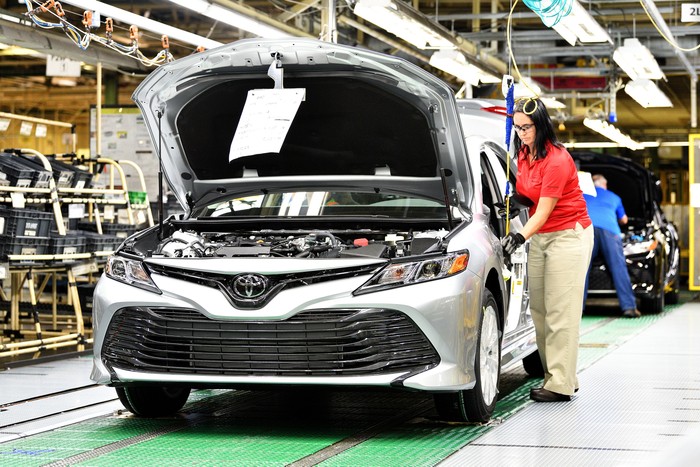
Toyota speaks out against proposed auto tariffs
Toyota is urging President Trump to hold off on any new tariffs.
Toyota has sent a letter to United States Secretary of Commerce Wilbur Ross urging the Trump administration to reconsider a round of proposed tariffs on foreign-made automotive parts. President Trump is considering the tariffs in the name of national security.
Toyota's letter contains several bullet points on why the Trump administration should pump the brakes on the proposed tariffs, but the company leads with the assertion that the tariffs would do little to actually protect national security. Although automakers have helped with war-time efforts in the past, Toyota notes that the production of military vehicles is a far different story in 2018.
"While U.S. commercial motor vehicle production, including Toyota and other automakers, is important to U.S. economic welfare and employment, the U.S. industry does not produce vehicles for the U.S. military or other defense purposes,” Toyota wrote. "The procurement of military vehicles, e.g. the Mine Resistant Ambush Protected (MRAPs), is limited to a small group of defense contractors producing highly specialized vehicles for military purposes at a cost that would be far beyond the means of the average middle-class U.S. household.”
The company added: "It would be highly impractical to take parts for commercial vehicles designed to safely transport the average U.S. family in comfort and meet strict U.S. environmental and safety requirements and incorporate them in a military vehicle.”
Toyota also highlights the fact that 56 percent of all vehicles sold in the U.S. are built here, compared to 54 percent for machinery, 53 percent for chemicals and just 23 percent for computers and electronic products.
Toyota also warns of a tremendous economic toll if the tariffs are enacted. The company's popular Camry sedan in made in America, but still uses about 30 percent non-U.S. content. That would translate to a cost increase of about $1,800 on a base price of $23,645. Vehicle imported into the U.S. would have even greater costs passed on to the end consumer, with a $30,000 vehicle seeing a price hike of around $6,400.
Toyota fears that the tariffs could lead to 2 million fewer annual auto sales in the U.S., which would cost American workers their jobs. "Reduced sales would invariably lead to cuts in production which, in turn, will lead to the loss of American jobs — in the manufacturing sector, but also in sales, distribution, maintenance and finance.”
Toyota directly and indirectly contributes to over 470,000 American jobs with an annual payroll of $23.6 billion.
The Trump administration has not announced a timeframe for a decision on the proposed tariffs.